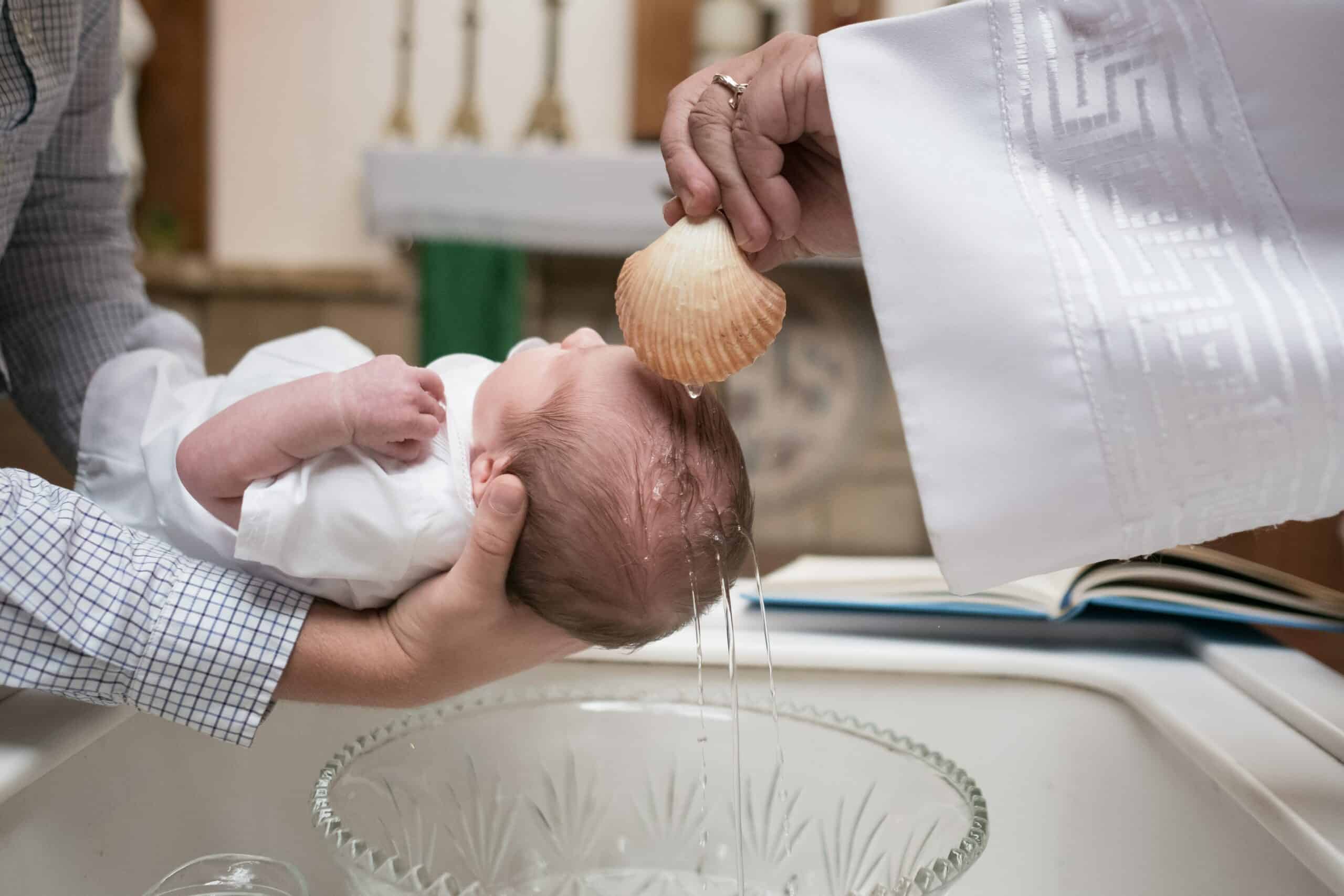
Photo by Josh Applegate on Unsplash
Recently the first year Catechetical School classes were studying Baptism at about the same time that numerous news articles were coming out about various clergymen not using the proper formula for the baptisms over which they were presiding. This resulted in the person they were “baptizing” merely getting wet. No baptism actually occurred.
Some students were aghast that the actual conferment of the sacrament never took place, especially since the change in the formula was merely replacing one pronoun with another. The proper form for Baptism is, “I baptize you in the name of the Father, the Son, and of the Holy Spirit.” What was reported to have been pronounced was, “We baptize you…”
Some wondered how and why this one word replacement could change the whole action, voiding it of sacramental grace. After all, isn’t Baptism necessary for salvation? Doesn’t intention count for anything?
To my students, I made the comment that “words matter.” To some this made sense. To say, “I hate you!” is diametrically opposed to saying, “I love you.” To say, “Indeed that dress does in fact make you look fat,” will not yield the same results as “you look beautiful.”
Nevertheless, particularly inquisitive students pushed the point further. “It is just a pronoun!” they exclaimed, “What is the difference between ‘I’ and We?’” Fair enough. Why would a simple pronoun-switch matter?
First let us look at the use of the “we.” It has been speculated that the presiders who used the word “we” may have thought that they were doing a service to the Church by using this pronoun: we, the Church, the collective, is baptizing you. What must be understood however is that there is no we, the Church, the mystical Body of Christ, without Christ the Head. In fact this Head [Jesus] is the one who came down from heaven and died for us and redeemed us. Indeed Jesus is the only one who could have done this for us. And, technically speaking, it is also Jesus who actually baptizes.
To understand this one has to understand this key point about the sacraments, namely who is actually conferring the sacrament. The Catechism of the Catholic Church in paragraph 1088 says, “By his power he [Jesus] is present in the sacraments so that when anybody baptizes, it is really Christ himself who baptizes.” This is why the “I” is so important. In effect, Jesus is saying, “I baptize you….”
How beautiful and powerful! In this simple utterance (and the action of the pouring of water) Jesus Himself is saying to us, “I baptize you, I myself, directly, because I love you and want to redeem you. I did not send an emissary, this moment is too important and so it is I, myself, who comes to you now to set you free from sin and death. I claim you for my own, you are precious to me.”
In other words, Jesus in the sacrament of Baptism speaks to us in a most tender and intimate way: He says “I.” As a quick aside, this makes me think of that cheesy 1990 romance movie Ghost, where Patrick Swayze’s character cannot seem to bring himself to tell the girl he loves, “I love you.” He always falls short by offering a simple “love ya.” Well, not Jesus. Jesus is a real man who knows who He wants and so He is not afraid to confess, “I baptize you!”
This satisfied the majority of my students. Still there was one astute student who pushed even further. Tune in next week to discover what her objection was (a worthy one, by the way) and find out what the answer is.

